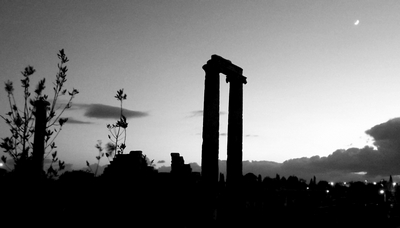Just prior to Christmas, I received a number of communications from my sources within Europe concerning the future of investigations into the Temple of Apollo at Didyma, writes Glenn Maffia.
Nothing concrete, you must understand, but nonetheless intriguing in the way that such archaeological tenets are being evolved, or rather dissolved, by the institutions engaged in this highly valuable and crucial work.
A brief history and perception
Possibly the Temple has lost some of its allure within the academic world. The ancient structure has been continuously ‘poked and prodded’ ever since Ciriaco de’ Pizzicoli (1391-1453/55) first noted its existence to a western audience in 1446.
The first survey (not excavations) of the area was conducted by the Dilettante Society of London, under the direction of Richard Chandler, during 1764-65; since that moment, we have had an ever-increasing series of investigations into the vicinity of the Temple and its hinterland.
The most recent and insightfully extensive by the German archaeologist institutions which date back to 1905/06, under the initial astute auspices of the esteemed Theodor Wiegand, and successive German teams have continued to toil upon Didyma’s earth ever since.
It is important to note this work was not affected by political doctrines laid down by succeeding German governments; the work remained entirely independent from that ‘gladiatorial arena’. Though that is not to say that consecutive German governments have not welcomed the ‘share of findings’ agreed with the Ottoman regimes, for they stand proud (and safe) within many museums throughout Germany.
It is fair to note that this is also true of British, French and Austrian museums, and their governments. Everyone desired a portion of the historical status and charisma of the Graeco-Roman world, and the Ottoman Empire had a surplus of this wealth which was entirely alien to their perceptions.
This ‘share of the spoils’, which appears to have been adjudicated purely by the western imperial nations, was concluded at the beginning of the 20th century, but there persists the feeling that modern Turkish perceptions have fundamentally not changed one iota from that of the Ottomans. As a Turkish friend once proclaimed on the Temple, “Load of old stones”, and the disrespect of the area continues with cafés and bars infiltrating the archaeological areas.
A change of direction
Though, the course of this long-agreed arrangement, and apparently harmonious story, is rumoured to be on a path of radical change.
My contacts have informed me that the long-established presence of the German Archaeological Institute (DAI) upon the Didyma site is rumoured to have mentioned that their interest in the site has somewhat waned to the point where they wish to curtail their long-standing licence and relinquish their responsibly to the Turkish archaeologists.
The DAI, and the Director of Excavations Prof. Helga Bumke, are whispered to have been brokering an arrangement where the DAI’s final activity at the site shall conclude with a ‘campaign’ which shall take place during April of this year. Henceforth, any further investigations upon the site shall be firmly in the domain, and responsibility, of, presumably, the Turkish Ministry of Culture and Tourism.
Though my contacts have informed me that the Turks do not want the Didyma site as it is too much of an expensive operation, and are baulking at the prospect.
I have no qualms about the professionalism and ability of the Turkish archaeologists, I believe they are excellent and have been trained with parity to any other European nation, though I am filled with trepidation as to where their direction is coming from.
I have long commented upon the wisdom of having a unified ministry of two entirely disparate groups; that of Culture combined with Tourism. To me, there remains a conflict of aims that can never be reconciled. Notably, Culture is the preservation and study of our collective human past, whereas Tourism is about exploiting the resources of this wondrously beautiful country to attract, primarily, a foreign clientele. The twain simply cannot meet.
We have long noted that the ‘reconstructions’ of antique artefacts, which despoil too many archaeological sites, do little or nothing to preserve the integrity of a sense of the original. As a German professional once noted to me, “Ah yes, the Turks enjoy rebuilding the temples”.
This is obviously intended to attract the foreign hordes, as I observed when watching the plethora of television holiday adverts illustrating Türkiye whilst in London over the Christmas and New Year holidays. Advertisements which were slick and appealing, but featured many reconstructed structures which many of those watching would have been entirely unaware that these were 20th or 21st Century pastiches.
I do not wish to see my beloved Temple of Apollo, the sole reason that I relocated here, suffer a similar fate. For it is a jewel in its own right. There is no need to embellish the perfect.
